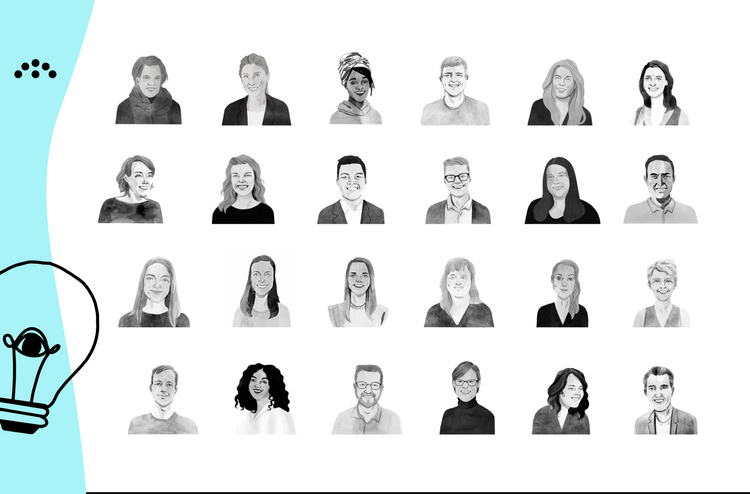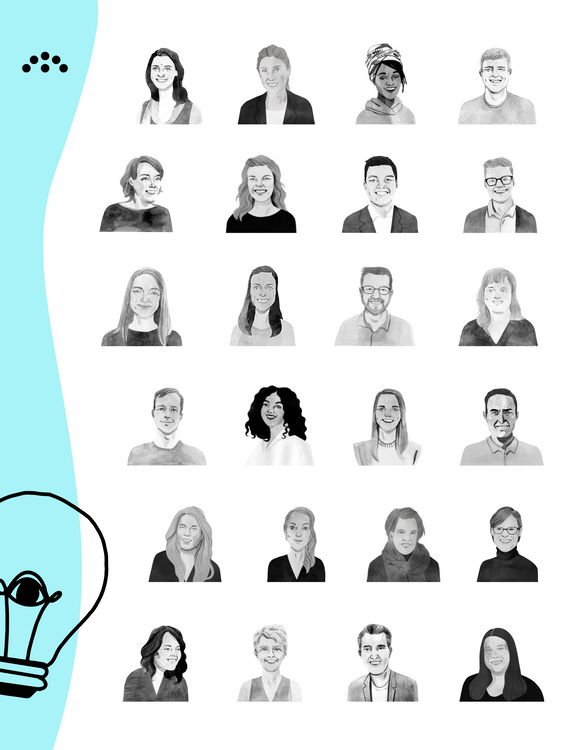Growth Partnerships
Qualities of a Good Consultant
A good consultant is drawn to this line of work because they love helping clients succeed. The qualities covered in this article support them, as they aim to serve their clients well.
Self-Awareness in the Workplace
Self-awareness is knowing what we think, feel, and believe about ourselves and how we behave.
Self-awareness is knowing what we think, feel, and believe about ourselves and how we behave. This set of skills is so prized that human resource leaders and researchers dub self-awareness the meta-skill of the 21st century. Yet self-awareness can be convoluted, especially in the workplace, showing up as something like this:
“I’ve spent years getting in touch with who I am, my thoughts, feelings, values, strengths, weaknesses, triggers, and more. I have devoted myself to introspective and insightful thinking. I assess myself honestly. I’m confident and grounded in my awareness. I meditate. I journal. Now you tell me I come across as significantly different from my self-impression? Or worse, you tell me I tend to be oblivious to things and those around me?”
It’s perplexing to think that even with extensive inner work, we can appear very differently to the external world and in ways we wouldn’t choose. But knowing ourselves is just half the equation, given that 95 percent of us think we’re self-aware and only 10-15 percent of us possess and practice those skills. Put another way: we don’t know what we don’t know. If we limit our awareness to ourselves, we’ve missed the relational aspect of self-awareness.
Moreover, too much introspection can lead to self-absorption that undermines relationships. Isolation tends to decrease confidence, increase stress, block creativity, increase anxiety, and ultimately hinder professional or personal growth.
Imagine a team meeting where a consequential project must be managed. Your role is designated to be the task tracker. However, you know yourself to be a big-picture thinker, but the team lead has assigned you the details. You start analyzing how details increase your stress levels, why this is so, and how other projects have gone well when you’ve been the concept person, so why would this team leader think otherwise? This whole thing makes you uncomfortable, and now you wonder if you’re being set up to fail. Maybe it’s time to confront the team lead about their colossal mistake. You’re annoyed by their ignorance. Your anxiety is spiking, and your heart is racing as you draw deeper inward to justify your feelings.
How about an alternative to this angst-filled scenario?
Instead, you could exhale and reflect as you get in touch with your strengths. You ask a trusted colleague if they agree that you’re a big-picture thinker–that monitoring details isn’t a strength and could expose your weakness. To your surprise, your trusted other considers you versatile enough for both. You two briefly brainstorm how task tracking can help you tap into new skills and offer the team diverse strengths. Now you feel energized and empowered because you reality-checked your internal self-awareness with someone who knows you and who has your respect. Instead of ruminating, you research how tasks and strategy can dovetail, and you can be the one to create that. You email the lead and suggest this role for yourself.
“Knowing yourself is the beginning of all wisdom,” once said Aristotle, and thought leadership includes one’s ability to look and understand from within. Introspection has rightfully earned its place in leadership halls and many C-suites. Books have been written, and courses taught on the practice. As Benjamin Laker, a respected voice on society and leadership, notes, “Introspection is the hallmark of emotional intelligence. It is vital to those in positions of authority…it is the gateway to self-knowledge.” While not mentioning self-awareness, per se, Laker upholds the importance of gaining perspectives from others beyond one’s internal discoveries.
A recent article in Entrepreneur points out that self-aware business leaders are more likely to understand and empathize with the needs and perspectives of others. When we combine the value of knowing ourselves, we can up-level our relationships with others to build trust and rapport with team members and improve communication, collaboration, and productivity. Self-aware entrepreneurs are more likely to listen to feedback from customers and stakeholders and use that feedback to improve products or services.
If only 10-15 percent of us practice self-awareness, it’s fair to say most of us can identify with the following list of unself-aware traits. Happierhuman.com lays out telltale signs:
Take heart if you recognize these behaviors in yourself or your team members. At Open Eye, we see ourselves there at times as well. We are a rapidly growing company, and we must remind ourselves to pause, take stock, and reflect, not simply respond to urgent and competing demands. We have woven into our organizational culture a commitment to listen to each other, deliver feedback respectfully, and accept constructive criticism gracefully. We have core values that are our foundation, and we balance those with curiosity that encourages us to grow and respond to new information, insights, and better ideas. Our founders like to say, be curious, not defensive. Do we succeed 100 percent of the time or even land close to that perfect score? No, but we continue to learn and grow from our mistakes and successes.
To cultivate self-awareness, here are some practices we’ve employed and recommend:
Open Eye’s coaching and team development programs cover self-awareness on four levels: internal or introspective, external and relational, applying the knowledge gained, and taking stock of strengths and weaknesses. We are committed to making our conscious leadership training easy to understand, follow, implement, and sustain. We aim to make conscious leadership a complementary asset for any size enterprise with a clear-eyed focus on relationships in healthy teams.
Watch for part II of our self-awareness series, where we discuss how to work with team members who are very low on self-awareness and why self-awareness is vital to the success of multi-generational workforces.
As the season of gifting arrives, when choosing a little something for a friend, will you tend to buy what you would like because, hey, you like the same things. You know their taste, so get what you’d like to receive. Easy. You might even buy one for yourself. Brilliant. Also very presumptuous. Might it land on the pile for regifting? Instead, try carefully observing your friend. Listen to them. Take time to ask what they are interested in these days. Notice what seems to light them up; what brings them laughter and replenishes them? Try this for a week and see what gift ideas materialize. Which gift do you think they would enjoy more? Added benefit: there’s an excellent chance your friendship will strengthen.
Are you interested in introducing your team to self-awareness and helping members be more cohesive, collaborative, attuned to each other, creative, and productive? Contact us at cl@openeye.email.
Subscribe to our monthly newsletter to receive our latest insights and stories.
Keep up to date with Open Eye’s latest thought leadership and tools for businesses making a positive impact in the world.

